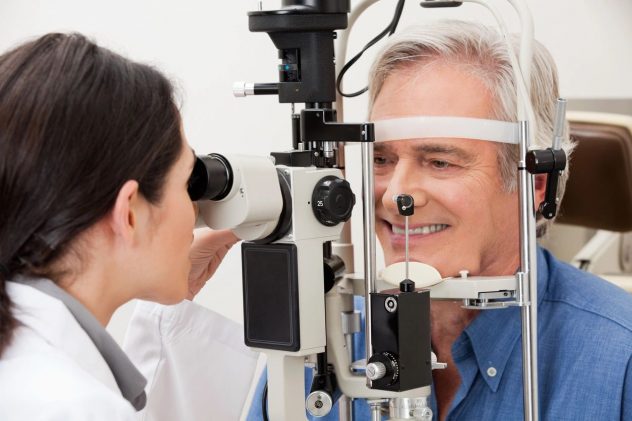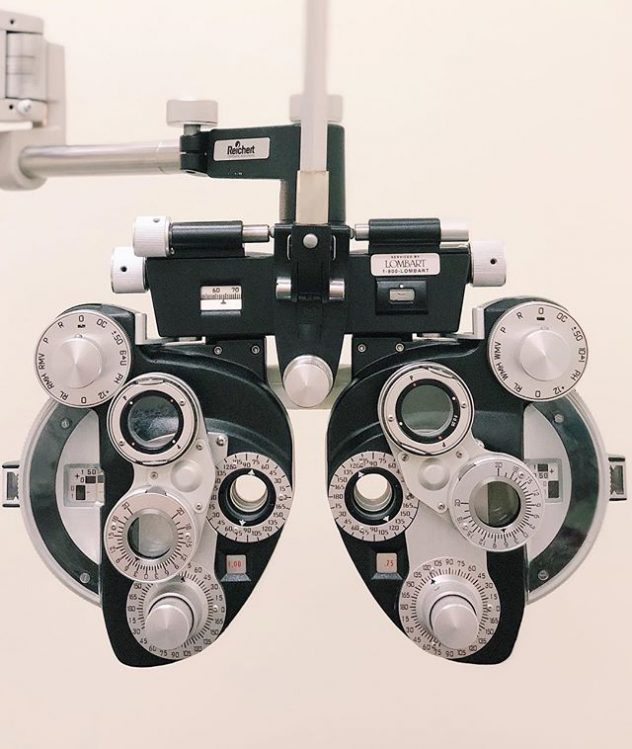Glaucoma affects 2.7 million people in the United States and is the second leading cause of blindness, yet understanding and awareness of the disease is low. In fact, 72 percent of Americans don’t know that glaucoma typically has no early warning signs or symptoms, according to the American Optometric Association’s (AOA) 2014 American Eye-Q® consumer survey.
Often referred to as the “sneak thief of sight,” glaucoma is a group of eye disorders that can damage the optic nerve and impair peripheral vision. If left untreated, glaucoma can lead to complete loss of sight. While the disease does not have a cure and is not preventable, it is treatable and can be detected in a comprehensive eye exam provided by your optometrist.
“A common misconception is that glaucoma only affects older adults when, in reality, it can happen at any age. In fact, it’s most commonly detected in people in their 40s,” said Dr. Inouchi. “The key is to identify and diagnose the disease early in order to promptly treat and slow the progression of vision loss.”
Americans are also largely unaware of the factors that put them at greater risk for developing glaucoma – only 13 percent of Americans know that a person’s race increases their chances for developing the disease. According to the Glaucoma Research Foundation, glaucoma is six to eight times more common in African Americans than Caucasians. Additional factors that put someone at greater risk for glaucoma include those who have a family history of glaucoma, diabetes, hypothyroidism, are over age 60 or individuals who have had severe eye trauma.
Treatment for glaucoma includes prescription eye drops and medication to lower pressure in the eyes. In some cases, laser treatment or surgery may be effective in reducing pressure.
In addition to yearly, comprehensive eye exams, Dr. Daniel Yamamoto & Dr. Tracie Inouchi suggests the following tips to help maintain overall eye health and clear, comfortable vision:
- Eat green, leafy vegetables and foods rich in nutrients like beta carotene, vitamin C and zinc to protect eyes from disease.
- Cut down on those bad habits such as smoking and consuming alcohol or excessive caffeine, which can all be harmful to the eyes.
- If you work in front of a computer, practice the 20/20/20 rule: every 20 minutes, take a 20 second break and look at something 20 feet away to help avoid digital eye strain.
- Wear sunglasses with UV-A and UV-B protection year-round.
Contact Dr. Daniel Yamamoto & Dr. Tracie Inouchi today at (808) 949-2662 to make an appointment for a comprehensive eye exam and to learn more about ways to help prevent vision loss from glaucoma.


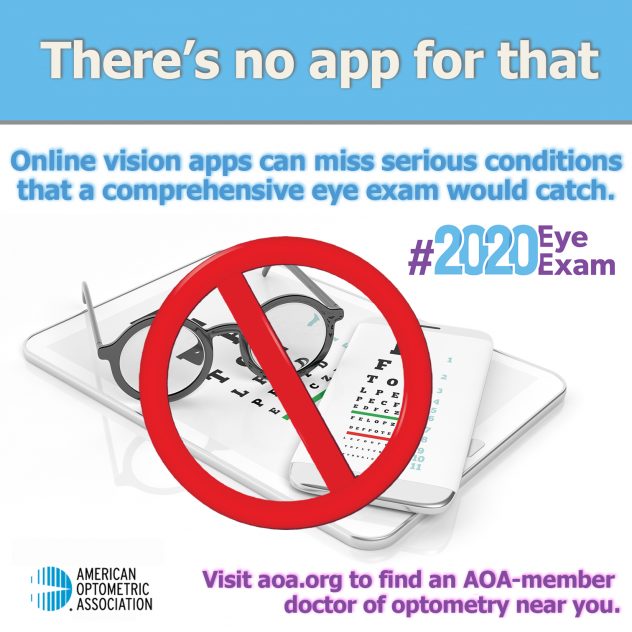
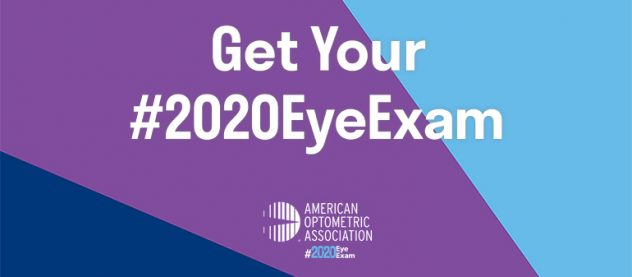
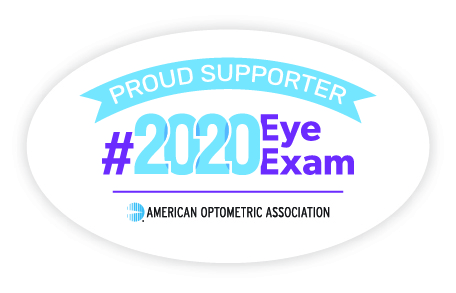 Wow! During an annual, comprehensive eye exam, doctors of optometry can identify early warning signs and manifestations of more than 270 systemic and chronic diseases, including diabetes, high blood pressure, autoimmune diseases and cancers. Schedule your #2020EyeExam today!
Wow! During an annual, comprehensive eye exam, doctors of optometry can identify early warning signs and manifestations of more than 270 systemic and chronic diseases, including diabetes, high blood pressure, autoimmune diseases and cancers. Schedule your #2020EyeExam today!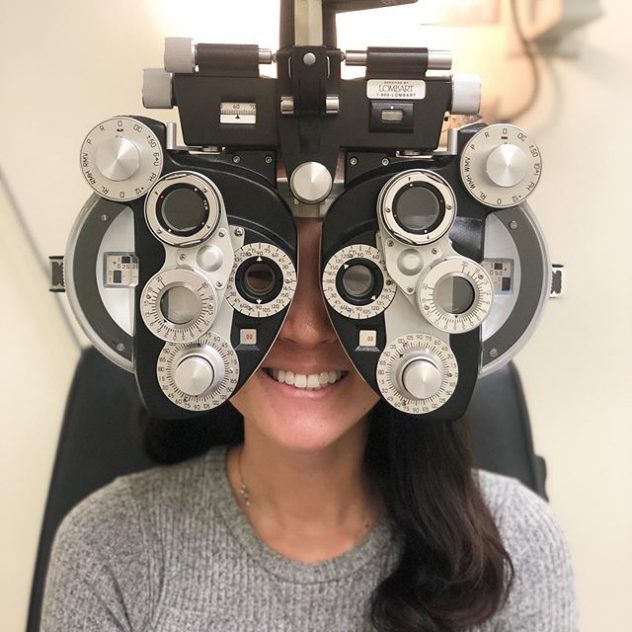
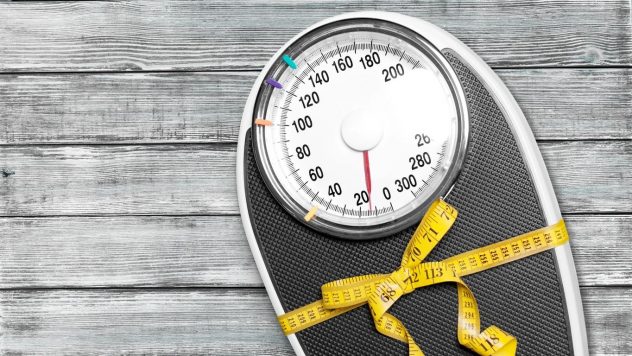

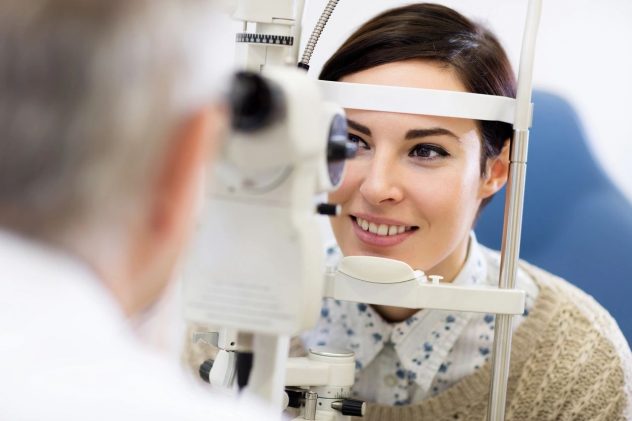 Practice good eye health … Make vision a health priority by seeing your eye care professional
Practice good eye health … Make vision a health priority by seeing your eye care professional